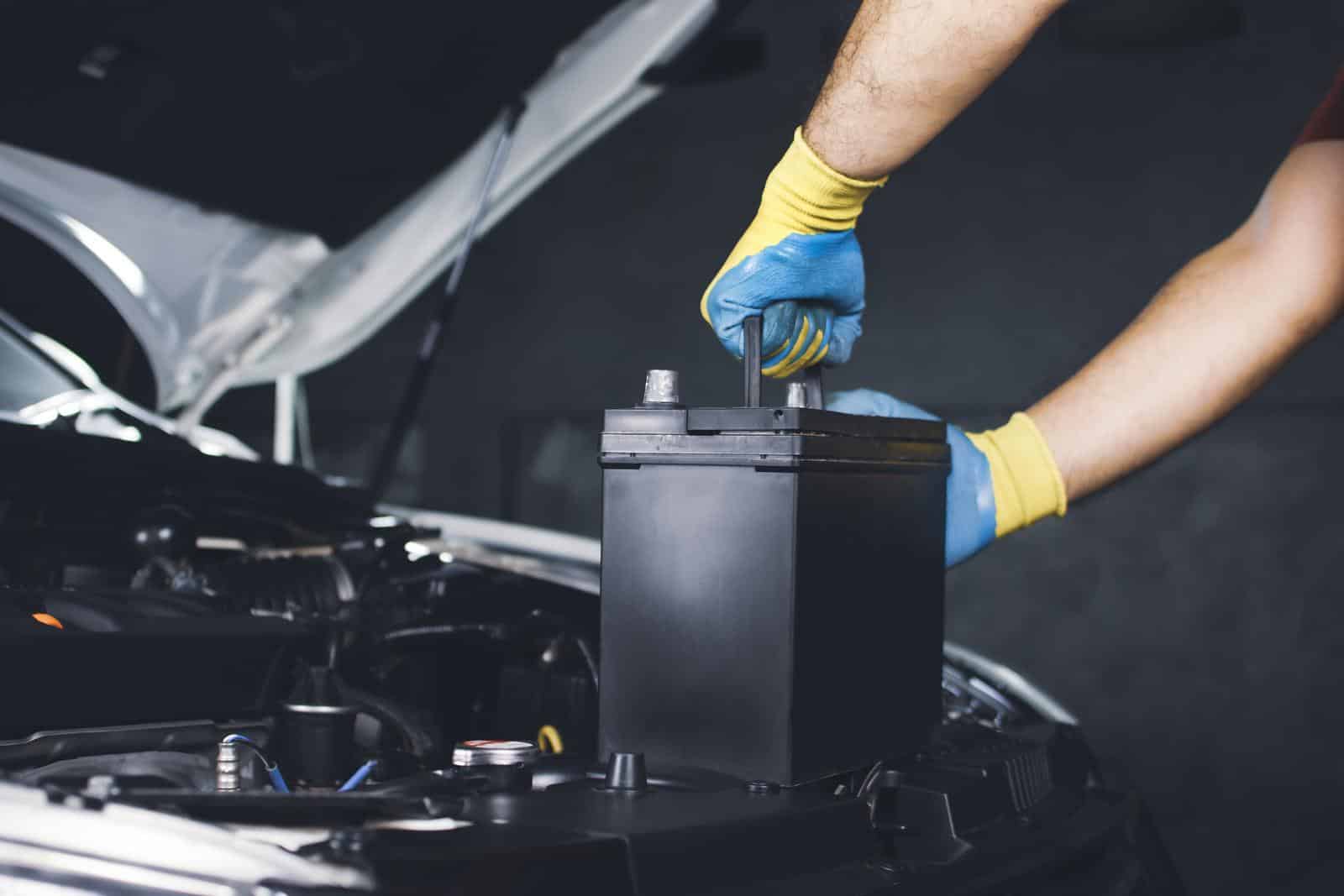Why Your Car Battery Voltage is Low and What to do About it.
Table of contents
Introduction
Why does a car battery lose voltage? And what can cause a car battery voltage to drop? It is not uncommon for a car battery to lose voltage over time. There are several reasons why this may happen, but the most common cause is simply age. The average battery life of a lead-acid automotive battery is between 2.5 to 6 years. As a battery gets older, it loses its ability to hold a charge as well as it did when it was new. Check out our article on How Long Does a Car Battery Last?
Some other common reasons include:
- A faulty or damaged alternator
- A problem with the charging system (including charge regulator, fan belt or wiring)
- A loose or corroded battery terminal or connector can reduce the current flow to and from the battery.
- A build-up of sulfate on the battery plates
- Excessive heat exposure
- Cold weather
- Parasitic drain from accessories and/or electrical systems
Read our article for more details on the above factors: 8 Things That Can Kill Your Car Battery.
A car battery voltage is an indication of the state of charge of the battery. The higher the voltage, the more charge the battery has. Low battery voltage means that the battery is discharged or that it cannot hold a charge as well as it should. Interestingly, although your car requires a 12V battery, a fully charged car battery will always have a higher voltage than that.
Lead-acid batteries have six cells, each of which produces 2.1 volts (through a chemical reaction) for a total of 12.6 volts. A fully charged battery will have a voltage of 12.6 to 12.9 volts. We say a car battery is discharged when it has a voltage of 12.2V or less. At this point, the battery may not produce enough power to operate the starter motor when the ignition switch is turned on.
A low voltage on a car battery can be caused by a number of things, including weather, age, and driving habits. If your car battery voltage is below 12.6 volts, it could be losing power and may need to be replaced. Battery failure is the number cause of vehicle breakdowns.

|
OPEN CIRCUIT VOLTS
|
PERCENT CHARGE
|
|
12.6 and above
|
100%
|
|
12.4 – 12.6
|
75 – 100%
|
|
12.2 – 12.4
|
50 – 75%
|
|
12.0 – 12.2
|
25 – 50%
|
|
11.7 – 12.0
|
0 – 25%
|
|
11.7 and below
|
0%
|
*Source Battery Council International

As you can see from the above chart, the range of voltage readings is extremely small. You will need a good quality analog or digital voltmeter or multimeter to avoid errors.
What are the signs to know if the battery of my car has a low voltage?

What are some symptoms if your car battery has a low voltage? There are several signs that you can look for to know if the battery of your car has a low voltage:
- The car’s engine doesn’t start at all. This is the most obvious sign that something is wrong with your battery. If your car won’t start, it could be due to several factors, but a dead battery is one of the most common causes.
- Slow engine cranking: If it takes longer than usual for your engine to start, it could be because the battery doesn’t have enough power to give it a boost
- The headlights are dim or flickering. When you turn on the headlights, they should be bright enough to light up the road ahead of you. If they seem dimmer than usual, it could be a sign that your battery is losing voltage.
- The interior lights (dome lights and dashboard lights) are dim or flickering.
- The car stereo is slow to turn on or turns off unexpectedly.
- The car’s electrical accessories (e.g., power windows, power seats, locks, etc.) are slow to operate or don’t operate at all.
Why does a car battery voltage drop overnight?
Why do some car batteries show a big drop in voltage overnight? One of the most common reasons a car battery voltage may drop overnight is because of a parasitic draw from accessories.
Parasitic draw refers to when there is an usually large amount of current being drawn from the battery because of some electrical fault. This parasitic draw can be detected even when all accessories are turned off and the ignition key has been removed.
Batteries have to handle an increasingly large electrical load as modern vehicles have a large number of electrical devices. This increases the chances of this type of problem as the vehicle gets older. A parasitic load will cause slow battery discharge and battery failure if the car remains unused for an extended period of time.

An experienced auto electrician will be able to find the cause of a parasitic load by going through all individual fuses in your car fuse box through a process of elimination until the problem electrical system is discovered.
Another possibility is that there is a problem with the charging system. If the alternator or other components of the charging system are not working properly, the battery will slowly drop in voltage. It is also possible that there is a problem with the battery itself. If the battery is old or damaged, it may not be able to hold a charge overnight. Finally, if the car is not driven often, the battery may simply lose voltage over a period of time from lack of use.
For a more detailed analysis on this problem, click here: Car Battery Keeps Dying- Causes & Solutions.
How to fix low car battery voltage?
How can you fix low car battery voltage and restore your battery to full capacity? If your car’s battery voltage is low, there are a few things you can do to fix the problem. The first thing you should do is check the connections. Make sure that the terminals are clean and tight. If they are corroded, you can clean them with a wire brush or sandpaper and reconnect them.
Next, check the Alternator. The alternator charges the battery while the engine is running, so if it is not working properly, the battery will not be getting charged. While the engine is running, measure the voltage across the terminals of the battery. If it is between 13.4 and 14.4 volts, then the alternator is working properly. If it is less than 13 volts, then the alternator needs further checks to determine if it needs to be replaced.
- Check the battery terminals. Low voltage on a car battery can also be caused by dirty terminals. To clean the terminals, disconnect the negative terminal first, then clean the terminals and battery posts with a wire brush, sandpaper and/or soda bicarbonate solution. Next, do the same to the positive terminal. Once both terminals are clean, reconnect them and start the car. Read our in-depth guide on The Best Way to Clean Car Battery Corrosion. Always wear safety glasses and gloves when working with lead-acid batteries to prevent serious injury.
- Check for loose connections. Any loose connections could be causing a loss of power.

- Test the battery with a voltmeter. This will tell you if the battery is truly low on voltage or if there is another problem.

- Charge the battery: if your car battery is low on voltage, you can charge it using a car battery charger. If you’re going to charge the battery, make sure you read the instructions carefully, so you don’t damage the battery. Click here for simple step-by-step instructions on How to Charge a Car Battery.
-

- Test the charging system. If the charging system is not working properly, it could be causing the low voltage. If your car battery is low on voltage and you’ve tried charging it and cleaning the terminals, it’s possible that there’s an issue with the alternator. To check the alternator, take the car to a reputable Auto Parts Store or mechanic and have them test it.
-

- Another way to prevent car battery voltage problems is to avoid using excessive electrical accessories, such as heated seats, aftermarket amplifiers and stereos, which can drain the battery. If you must use these accessories, make sure the engine is running so that the alternator can charge the battery.
- Lower ambient temperature can drastically reduce the electrical output and voltage of your car battery. In cold weather, car batteries can lose power more quickly, so it is important to keep them warm if possible. You can do this by parking your car in a garage or using a battery blanket. Place this underneath the battery tray or wrap it around the battery to thaw the battery out if it freezes because of cold temperatures.
Victor Jaxen, is a highly experienced Sales and Marketing Manager with a demonstrated history of working in the automotive industry. With over twenty years of experience, Victor has a strong background in customer service and automotive engineering. He holds a Master of Engineering – MEng degree in Manufacturing Engineering from Cardiff University / Prifysgol Caerdydd. Victor is passionate about delivering exceptional results and utilizing his skills to drive business growth. Stay tuned to annewetey.com for valuable insights and industry expertise from Victor Jaxen!


 Previous Post
Previous Post Next Post
Next Post
